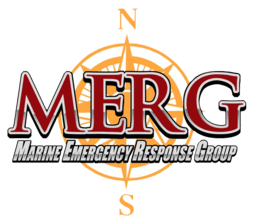Professional Training Tailored to Meet Your Needs
Training Programs
We provide a variety of training tailored to suit your organization's individual needs:
Basic crewmember skills are the fundamentals for successful missions. We currently offer a 16-hour and 32-hour basic crewmember courses to lay the foundation for your new members / employees.
Marine operator training is for persons wishing to become vessel operators. Operators are the actual person(s) driving the boat or vessel. This section also covers vessel operator crossover training (props to jets, jets to props).
Vessel Orientation
Our company will orient your personnel to your new vessel and equipment. We have worked with several boat builders in the past and will do so on your belf to ensure your crews receive the knowledge they need to safely and efficiently operate your new vessel.
Scenario-Based Training
Need a full-scale drill to test your readiness? We will put together a scenario in your area using your local resources. Our scenarios will be realistic and test your boat operators, crewmembers, command staff, and land units participating in the exercise.
- Boat Crew Member Course
- Boat Operator Search and Rescue (BOSAR) Course
- Fire Boat Small Course
Basic Crewmember Training
These classes are a foundation for any person(s) assigned to or working on rescue boats (police, fire, towing). Currently, we offer two classes:
16-Hour Class
The first portion is an introduction to the marine environment. It will cover basic marine terminology, vessel characteristics, equipment, distress signals, towing and trailering, ropes and knots, safety, communications, and department SOP's.
This 16-hour class will break up the lecture into modules to incorporate hands-on training. Beginning with a half-day lecture, this class moves into hands-on training and familiarization with your equipment. Day two starts with a short classroom session and quickly moves into practical exercises using your equipment.
32-Hour Class
This class presents the basics for an agency starting a new program. We begin with the 16-hour course and progress into practical applications for boat operators on day three while crewmembers are completing more practical exercises. On the last day, we combine operator and crewmember techniques in practical activities to introduce the team concept and team building. This class provides the most for your money.
Vessel Operator Training
Marine operator training is for persons wishing to become vessel operators. Operators are the actual person(s) driving the boat or vessel. This section also covers vessel operator crossover training (props to jets, jets to props).
Jet &Prop Propulsion Vessels
MERG will teach general to advanced handling techniques for vessels equipped with jets or props, single or multiple engines. Operator training involves hands-on operations of your vessel, while underway, through a series of evolutions involving, but not limited to, docking, close-quarter handling, high-speed operations, and a variety of other techniques used in routine and emergencies. Normal operator training comprehension for marine jet systems is about 1 to 1 1/2 hours, followed by a break of the same length. This break is primarily to prevent mental fatigue. Listening and watching the student in the operator's seat also achieves learning. We recommend training two students per day, thus requiring two days to complete eight hours per student. Depending on the vessel's size, it is possible to allow future students to ride along to watch and listen. The customer is responsible for supplying vessel, fuel, and any other expenses associated with vessel operations during the training.
MERG Specializes in Marine Jet Operational Training
Demonstrate the versatility of marine jet propulsion systems and then instruct the students on the system's proper operation. Without appropriate training, customers can become dissatisfied with the jets simply due to the lack of understanding of the full capabilities. We have found that the optimal training regimen for operator training comprehension is about 1 to 1 1/2 hours, followed by a break of the same length. This break is primarily to prevent mental fatigue. Additional students watching the instructor and the student in the operator's seat are also learning by observing further instructional techniques they missed. We recommend training two students per day, thus requiring two days to complete eight hours per student.
MERG instructors have received recommendations from Hamilton Jet, LLC, and Ultra Dynamics Inc. to instruct marine jet propulsion operations. MERG is also authorized and certified by Hamilton Jet and Ultra Dynamics to provide service and parts for their products.
MERG instructors have received recommendations from Hamilton Jet, LLC, and Ultra Dynamics Inc. to instruct marine jet propulsion operations. MERG is also authorized and certified by Hamilton Jet and Ultra Dynamics to provide service and parts for their products.
NASBLA Boat Program
MERG instructors are approved to teach the Boat Crew Member Course, Boat Operator Search and Rescue (BOSAR) Course and Fire Boat Small Course within the NASBLA Boat Program. Please visit the NASBLA website for additional information on these course.
